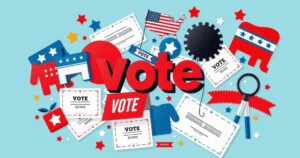Experts Hesitant to Comment on Trump’s Political Climate

Experts Hesitant Amid Trump’s Promised Retribution
In a developing situation that highlights the tense political climate, a recent investigation by The New York Times has revealed that the Secret Service monitored former FBI director James Comey after he shared a photo, which Trump’s allies deemed to have assassination implications. This raises disturbing questions; was Comey surveilled because he posed a genuine risk, or was he merely a target of Trump’s promised retribution against perceived adversaries? What complicates matters even more is the difficulty in gathering insights from experts, as many declined to participate in discussions.
A chilling effect on discourse in politics
The reluctance of experts to speak out has become a concerning trend that speaks volumes about the current atmosphere in Washington. When reporters like us set out to provide context to incidents of this nature, we typically rely on specialists in relevant fields, leveraging their expertise to dissect the unfolding story. However, the fear of retribution appears to have curbed their willingness to engage; this could be indicative of the broader implications of Trump’s influence and the chilling effect it might be having on informed commentary in the political landscape.
Importance of expert voices in media reporting
It’s essential for the media to present comprehensive narratives—this is where expert insights become invaluable. Our readers rely on us to clarify the complexities surrounding significant events like the surveillance of Comey. The facts we uncovered are crucial, but without robust analysis from those knowledgeable about the law and political ethics, the story risks becoming just a headline rather than a thorough investigation. As the political climate continues to shift, we must question not only the story itself but also the environment in which we gather information.





